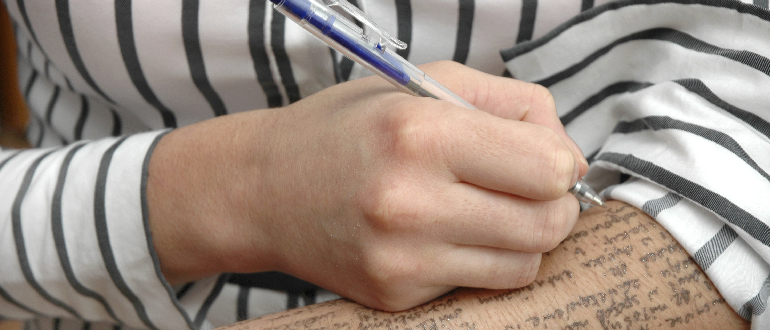An exam is a test at which you demonstrate your individual qualifications within in a particular field. If you cheat in an exam, the result on your exam certificate will obviously not be true reflection of your qualifications, it will loose its value and the credibility of all exam certificates issued by the University of Southern Denmark will suffer.
Avoid the following situations
The below mentioned situations are common exam irregularities. Note that situations not mentioned may still count as cheating -
You are responsible for keeping updated on the principles of Proper Academic Practice
Cheating in Exams
Plagiarism is when “(…) you imitate or copy texts written by other people without citing
the source or indicating that the text is a quotation or a summary rewrite.”
(Translated quote from Leth Andersen, H., & Tofteskov, J.(2008).Eksamen og eksamensformer: Betydning og bedømmelse.
Frederiksberg: Samfundslitteratur. Page 157-158).
Plagiarism is a many things, but in an exam situation, plagiarism means that you give the impression that a text, an illustration,
a structure, an idea etc is your own work, when in fact it is not.
If you reuse parts of an assignment that you have prepared for a previous purpose, you have to treat this assignment just like any other source; that is, use correct source referencing and quotation.
In connection with onsite written exams, any contact with other examines or persons outside the exam room is regarded as cheating, regardless of whether you are talking about the exam paper or not.
Letting a fellow student or a family member solve an assignment for you, whether or not it is the whole assignment or just parts of it, it will be regarded as attempted deception.
If no materials/aids are permitted, you cannot bring for example a collection of formulas or a dictionary. This counts as cheating regardless of whether you use them or not.
If no materials/aids are permitted and you bring notes to an on-site written exam and use them, this also counts as cheating.
If your exam paper involves collecting empirical data, it counts as cheating to make up your own data or manipulate data.
You must comply with the deadline stipulated for the exam. Time is a factor in the assessment of the paper, so if you succeed in continuing to work on your paper after the end of the exam period, the basis of assessment will be wrong and will counts as cheating.
If you know about the exam questions/answers in advance and you still sit the exam, you are cheating.
For some courses, attendance is compulsory. This means that attendance is regarded as part of the exam. Providing incorrect information about attendance therefore constitutes cheating. This applies regardless of whether you provide incorrect information about yourself or others.
